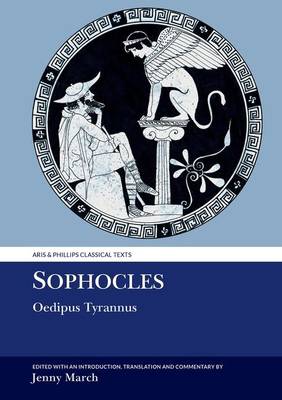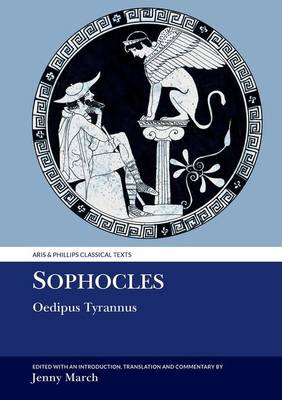
- Retrait gratuit dans votre magasin Club
- 7.000.000 titres dans notre catalogue
- Payer en toute sécurité
- Toujours un magasin près de chez vous
- Retrait gratuit dans votre magasin Club
- 7.000.0000 titres dans notre catalogue
- Payer en toute sécurité
- Toujours un magasin près de chez vous
Description
Oedipus Tyrannus by the great tragedian Sophocles is one of the most famous works of ancient Greek literature. The play has always been admired for the tight unity of its plot; every bit of every scene counts towards the dramatic effect. The action is concentrated into a single day in Oedipus' life; his heinous crimes of unwittingly killing his father and marrying his mother all lie long ago in the past, and now, in the action of this one day, there awaits for him only the discovery of the truth.
Oedipus is portrayed as a noble king, deeply devoted to his people and they to him. Proud of his earlier defeat of the Sphinx, he is determined to save his city once again, and he unflinchingly pursues the truth of who he is and what he has done, unaware that it will bring him to disaster. The spectators, familiar with Oedipus' story, wait in horrified suspense for that terrible moment of realisation to arrive. And when it does, Oedipus survives it: he takes full responsibility for what he has done, accepts the grief and the pain, and carries on, remaining indomitable to the end. Sophocles gives no answer as to why Oedipus is made to suffer his tragic fate. He simply shows us how human life is; how even a great and good man can be brought to the utmost misery through no fault of his own. The gods may, for no apparent reason, deal out unbelievable suffering, but humankind can survive it. Jenny March's new facing-page translation brings alive the power and complexities of Sophocles' writing, with a substantial introduction and a detailed commentary.Spécifications
Parties prenantes
- Auteur(s) :
- Editeur:
Contenu
- Nombre de pages :
- 324
- Langue:
- Anglais
- Collection :
Caractéristiques
- EAN:
- 9781789622546
- Date de parution :
- 18-12-20
- Format:
- Livre relié
- Format numérique:
- Genaaid
- Dimensions :
- 157 mm x 213 mm
- Poids :
- 544 g

Les avis
Nous publions uniquement les avis qui respectent les conditions requises. Consultez nos conditions pour les avis.






